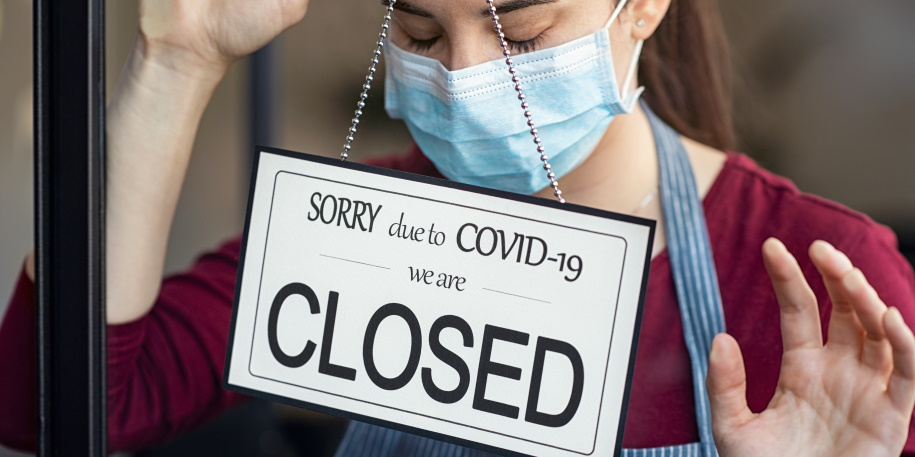Obtaining Debt Relief Through Chapter 7
COVID-19 has caused a considerable amount of economic hardship for Americans in 2020, and it’s estimated this trend will continue well into next year. Many individuals have already experienced some type of job loss – either temporary or permanent – due to the widespread impacts of the virus. Restaurants, bars, and other industries deemed “non-essential” were all dealt a crushing blow, with many of those businesses having to close their doors permanently and release their employees.
If you’ve found yourself in a situation where you’re unemployed and unable to pay your monthly bills due to COVID-19, then you may be in the demographic that qualifies for Chapter 7 bankruptcy. Even if you’ve looked into this previously and didn’t qualify, the situation might be different now depending on how your household income compares to median household income in your state and how long you’ve been out of work.
What is Chapter 7 Bankruptcy?
In a sense, a Chapter 7 filing offers total debt relief and is like a new beginning. Unlike a chapter 13 bankruptcy, the individual debtor is no longer liable for many types of debts that are due to their creditors.
A Chapter 7 bankruptcy allows the individual to keep all the property that is deemed “exempt” (see: “What Property Can I Keep In Chapter 7 Bankruptcy?”); however, “non-exempt” property can be taken from them and sold for the benefit of their creditors. Typically, the individual gets out of debt through what’s known as a “discharge,” but it’s important to know that you may still owe on certain “non-dischargeable” items, such as student loans.
The Wink Law Firm has established ourselves by keeping the Chapter 7 filing process easy for our clients. We also work to keep non-exempt property to an absolute minimum to ensure you lose little to no property at all.
Before Filing for Chapter 7
Although filing for Chapter 7 can remove financial strain via debt relief, there are some factors to take into consideration before doing so. Remember, a Chapter 7 bankruptcy will remain on your credit report for 10 years.
You should only file for Chapter 7 after knowing that you are eligible and what property you have – if any – that may be liquidated by the bankruptcy Trustee. If you’re thinking about filing due to unemployment status and/or financial hardship, make sure you consider the following two items:
- Unemployment insurance relief relating to Coronavirus: If you’re unemployed, you may be eligible to receive unemployment benefits with the state you reside in and via the CARES Act. You can read more about government assistance on the U.S. Department of Labor website.
- Tax refund: Tax season is right around the corner. If you’re entitled to a refund, it is likely an unprotected asset in bankruptcy. Therefore, you may want to receive it and spend it prior to filing bankruptcy.
Am I Eligible to File For Chapter 7?
In order to file for Chapter 7 bankruptcy, you must meet certain income requirements. These requirements are specific to your amount of income, the number of individuals living in your household, and the area in which your household is located. If you are experiencing unemployment due to COVID-19, this is going to affect your reported income. Two or three months of unemployment may be enough to make you eligible for Chapter 7 bankruptcy.
In order to see if you qualify, the first thing you’ll need to do is take the means test. A means test determines if you are able to pay back your creditors and whether you will be allowed to take advantage of the protections and benefits that Chapter 7 bankruptcy offers.
In the state of Colorado, your median income on an average of the prior six months will be compared to the median income of a comparable home size. If your income is lower, then it is likely that you qualify to file Chapter 7, especially if you’ve been unemployed for all or a portion of the six-month period.
Even if your median income is higher, you still may qualify. There are exceptions to the rules, and The Wink Law Firm has consulted with thousands of consumers and small business owners in order to help them determine if they qualify for Chapter 7 debt relief.
Where Can I Get Help With Filing For Chapter 7 in Denver, Colorado?
Filing for Chapter 7 is a new and complicated process for most people. If you’re considering this form of debt relief, you’re likely going to have a lot of questions and concerns.
Fortunately, Mike Wink has more than a decade of experience with helping clients in the Denver area through the process. If COVID-19 and unemployment have put you in a situation where you can’t keep up with your debts, give us a call and we’ll be happy to answer your questions.
Contact us today to set up your free consultation and take the first step to wiping out your debt.
Please note that due to COVID-19 and enhanced safety protocols, all consultations are being conducted remotely until further notice.

